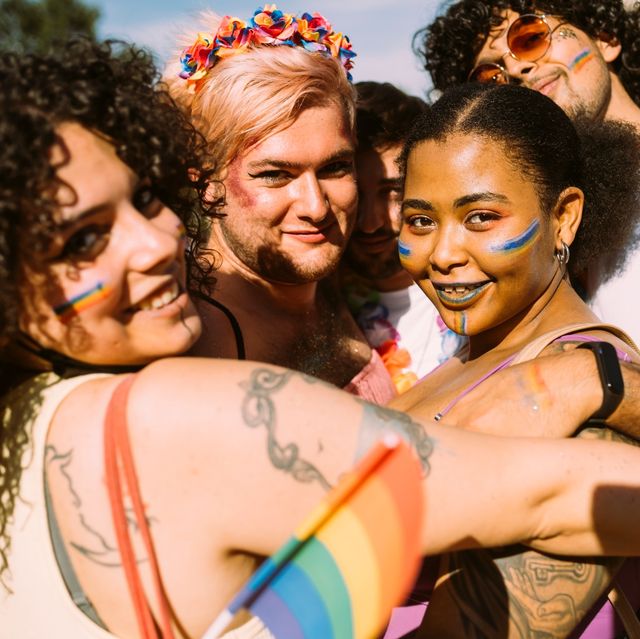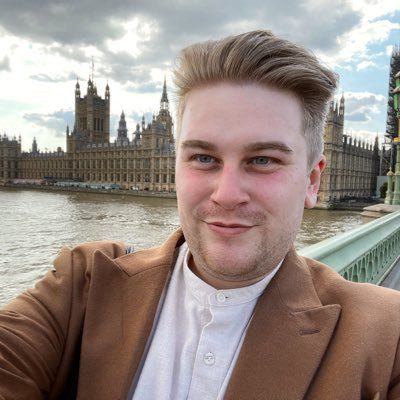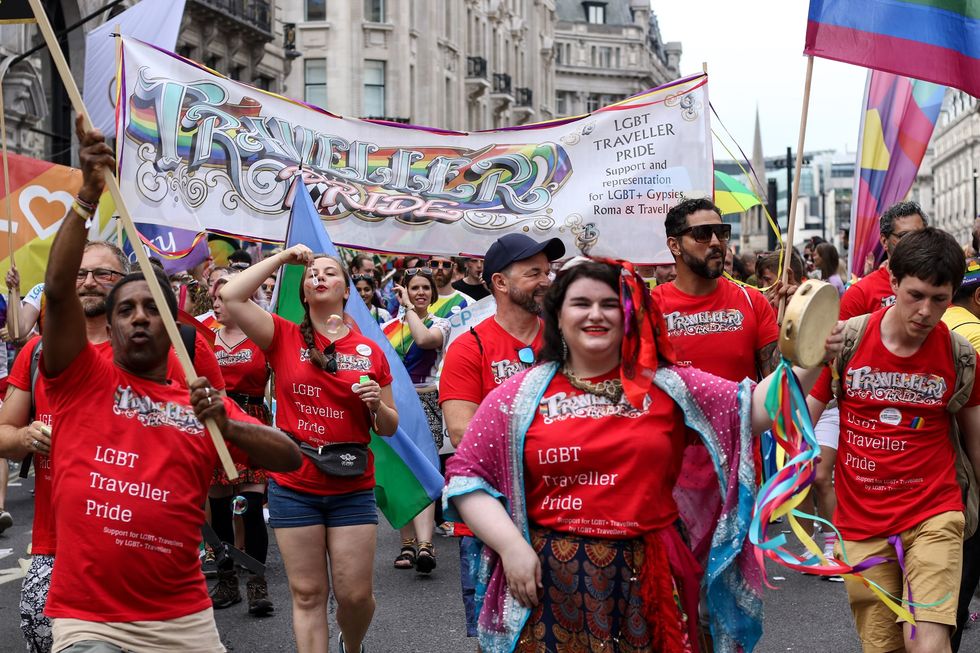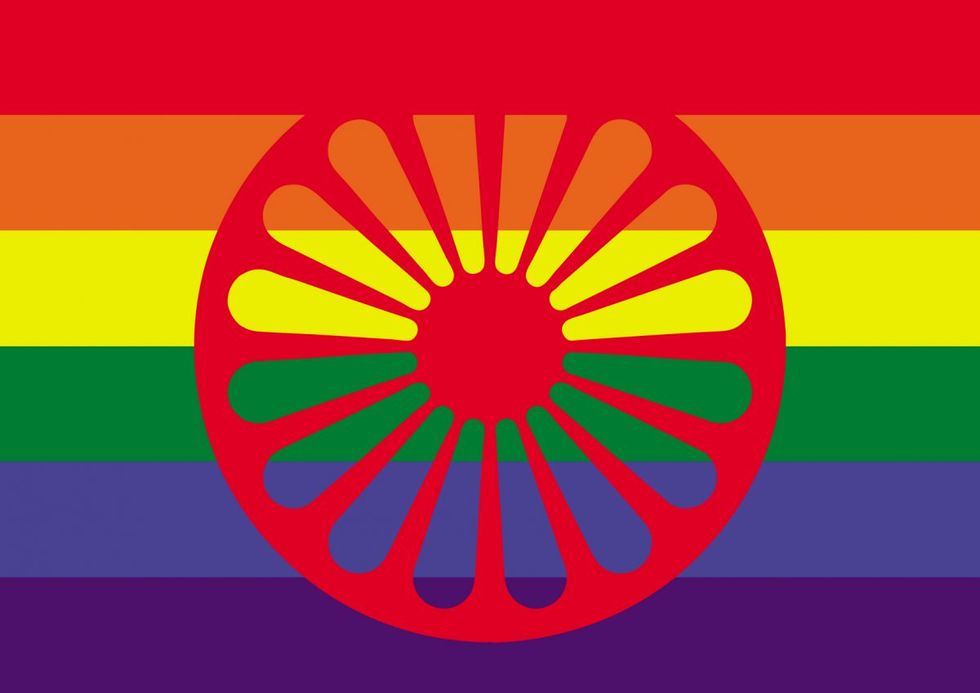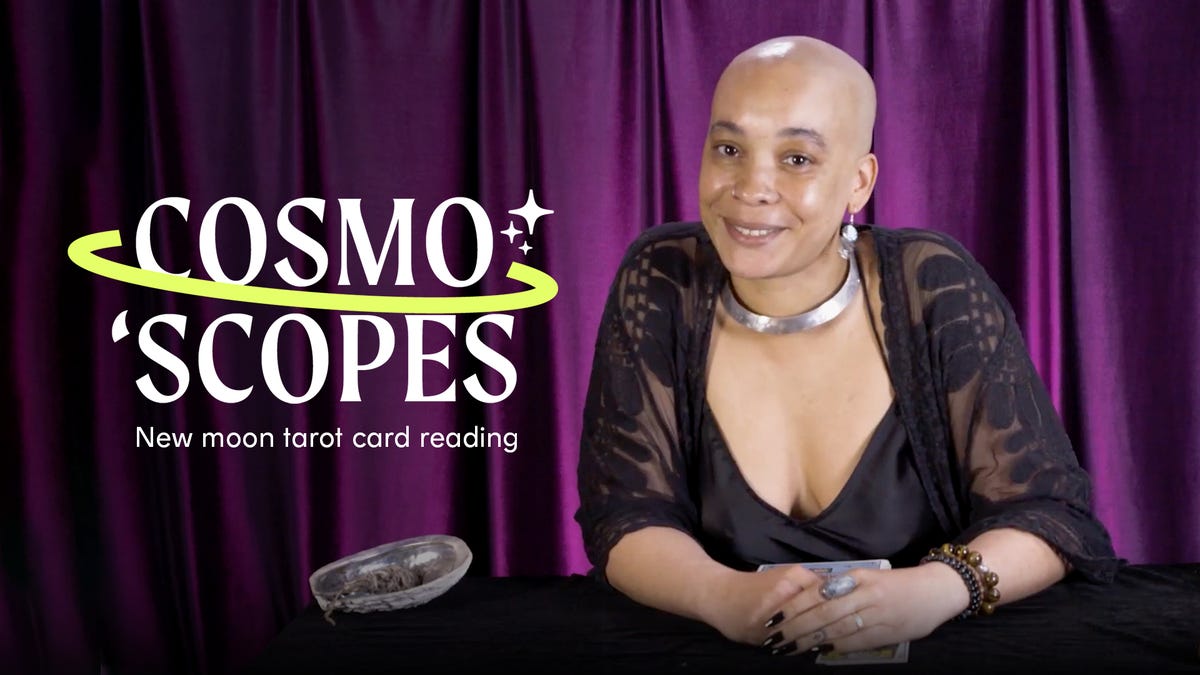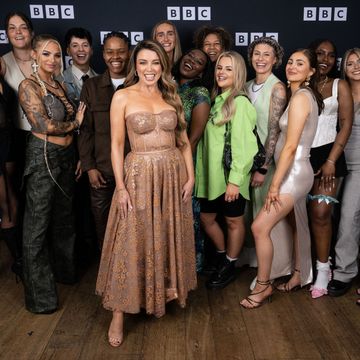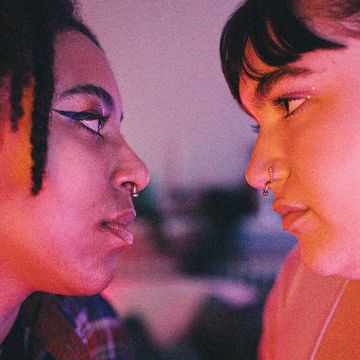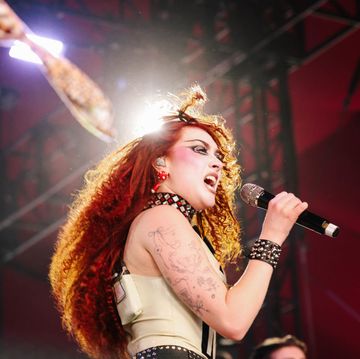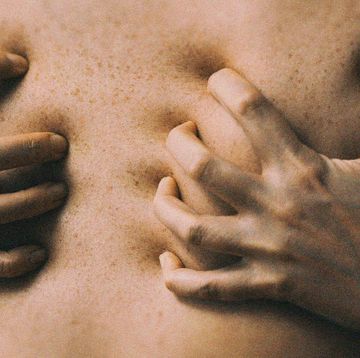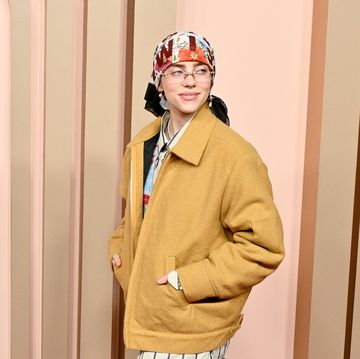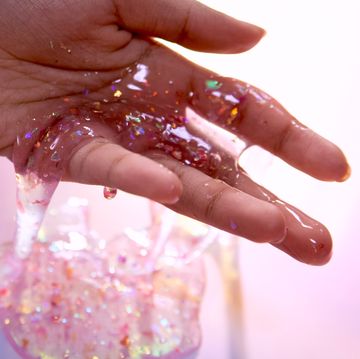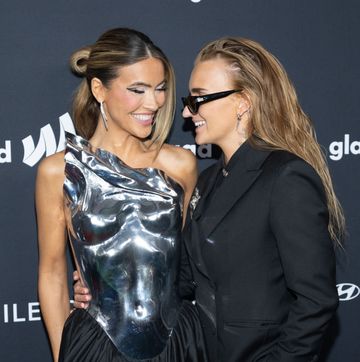If you hadn’t noticed by the sea of rainbows (we’re living for them), June is Pride month; a month to celebrate the diversity, resilience and beauty of the LGBTQIA+ community.
But it’s also Gypsy, Roma and Traveller History month - an initiative which started in 2008 to “tackle prejudice, challenge myths and to amplify the voices of Gypsies, Roma and Travellers in wider society,” through “celebration, education and raising awareness,” according to Friends, Families and Travellers, a charity which works to end discrimination against Gypsy, Roma and Travellers (GRT).
There is still a lot of misunderstanding, stereotyping, and prejudice facing GRT communities. A recent survey found that 62% of Gypsy or Travellers had experienced racial assault. It also showed that they were more likely to have poorer health outcomes and are 2.5 times more at risk of not having access to health and social care than white British people.
Many of the issues GRT communities face are compounded for Travellers for who also happen to be lesbian, gay, bisexual, trans, or any other queer identities. Both communities may struggle to access adequate healthcare, including accessing sexual healthcare like PrEP or birth control. Services for sexual and gender based healthcare can require an address in order to access, which can be a problem for communities more likely to be housing insecure - like Travellers and LGBTQIA+ people.
Mainstream opinion on GRT communities still holds them as regressive, patriarchal, and homophobic, in part thanks to shows like My Big Fat Gypsy Wedding. While those issues certainly persits in these communities - and as our interviewees explore, can have a profound impact on queer Travellers - young Travellers are now taking to the internet to tell their side of the story. #Gypsytok on TikTok has 89 million views, and has become a place for Gypsies, Roma, and Travellers to share insights into their lives and communities.
But the stories of queer Travellers are still missing from the narrative. To celebrate the overlap of Pride and GRT history months, we asked three people who identify as LGBTQIA+ and GRT (we’ll be using ‘Traveller’ as an umbrella term in this article) to tell us about their experiences.
Tyler (he/him) describes himself as a bisexual Showman and a founder of Traveller Pride. He’s also a practising Psychotherapist. Declan (he/him) identifies as a gay man and an Irish Traveller and is an Equality & Social Justice Unit Casework and Development Officer at Traveller Movement. Sam (he/they) is a student and runs his own jewellery company. They’re from a Romany Gypsy background. Finally, Sally Carr MBE, she/they, is queer and a Gypsy. "I like to use the term ‘Quypsy’: reclaiming with pride the words ‘Queer’ and ‘Gypsy'," they tell me. She works in a range of roles in sport, youth work, health, equalities and creativity.
What does being a queer Traveller mean to you?
Tyler: The thing that I've learned through Traveller Pride, although it was my suspicion anyway, is that like any identity, it's hugely individual and from both sides, you can easily feel like there's a right way to be a Traveller or that there's a right way to be LGBT. So often we get people who feel like they’re not enough in either camps or like “oh, I’m comfortable being LGBT, but not as my Traveller self”, or vice versa.
Sam: I guess for me it means that I'm queer and a Traveller!
It's a bit of a complicated intersection of identities, because the majority of Gypsy and Traveller communities are still quite conservative in their approaches to it. Of course, there are people who will be more accepting. We're often overlooked by the queer community because people just don't think we exist.
Declan: Put very simply, it means I am gay and I am a Traveller. But what that means is I, at best, experience a society where two aspects of my character are questioned or are at risk discrimination. Delving deeper, it means I am a minority in a minority. Does that mean I’m comfortable expressing both those aspects of my identity? Not always, especially not in the work I do supporting children. But I’m very proud of who I am, and I’m very lucky that I can be open and honest.
Sally: Growing up in the 1970s and 1980s there was explicit racism against GRT communities. Pubs and rental properties would openly display signs that read “no gypsies”. On top of that, discrimination towards LGBTQ+ communities was everywhere: schools, libraries, police, work, etc.
So, being both Romany Gypsy and Lesbian meant that every day had to be carefully navigated in this persistent toxic environment. I would like to say - after 35 years of my work with LGBTQ+ youth and anti-racist youth work practice - that things are much better in 2023. But I worry that’s not the case. I still find the need to code switch as part of my daily life even now and I fear with regard to equality, there is still a long way to go.
What sort of issues do LGBT+ travellers face?
Tyler: All of the ones Travellers face, and all the ones LGBT+ people face, plus some extras just for us. If you’re split between two worlds that often aren’t thought of as being intersecting, it can feel like you’re inadequate in both. It can feel like everyone around you is really comfortable being in LGBT spaces or always around other Travellers. There were no spaces for us to mix as LGBT Travellers. It can feel like you have to mentally split up parts of yourself that’s quite a heavy psychological burden.
Representation of Travellers in general is terrible. When was the last time you saw a film where a Traveller character was named? So you never expect to see a Traveller who is disabled or gay or neurodiverse and It can feel like you’re just not worth representing. [When we were setting up LGBT Travellers] everyone said ‘I've never met another LGBT Traveller’. Especially if people are travelling or spread out geographically, it can be difficult to connect with each other. There was a lot of isolation.
Healthcare is another issue; if you need to get PreP regularly but you’re living on the side of the road, that’s difficult because [the NHS] want you to stay in the same place, and be going to the same clinic.
Sam: I think potentially we’re at a higher risk of housing insecurity because often what you'll hear about is people, quote, “leaving the community”. One major example I could think of was Cherry Valentine. If you're part of the community and your family network is very unaccepting, you can’t stay there if it isn’t safe. Then of course if you do have an accepting network, if you’re living roadside [that’s still] housing insecurity because you're always being evicted.
Declan: It depends on where you are and the network you have around you in your local community. My experience has been very positive, and my life and my family has evolved to where I can express that I’m gay and that I’m a Traveller, but I know for a lot of my friends that that isn’t the case. They’ve felt the need to find security [outside of their community] before they were able to express their sexuality or gender identity because of fear of what the response would be.
Sometimes that feeling is coming from language and jokes used in the community that can be quite anti-LGBT. That was the case with my dad but thankfully, our relationship has evolved. But I know for lots of people those [familial] relationships no longer exist. We had a gay man who works with our organisation who is a little bit older, he used to live on a [caravan] site and he faced insults, vandalism and assault and was eventually driven from his home. So it’s different for different age groups and different areas.
Sally: There are now many LGBTQ+ organisations, and more LGBTQ+ supportive spaces. Pride flags are everywhere. But my experience is that they are often not supportive of all intersectional LGBTQ+ identities. Anti-gypsyism is alive today as much as it has been throughout my life. Every day, the emotional labour I need to put in just so I can be my authentic self - or to protect myself - is exhausting.
I also find that class doesn’t get talked about much either. Although not all GRT LGBTQ+ people are in lower social economic classes, many of us are working class which adds another layer for how we might not ‘fit in’. Class privilege is often unacknowledged and micro-aggressions go unchallenged. Participation in youth pride events for example often means you need some money - if only to get to the event. Many LGBTQ+ GRT young people can’t be out to their parents because they are afraid of rejection and humiliation. So getting parental consent is going to be a no-no for many.
Does queer Traveller culture differ from queer culture and Gypsy, Roma, Traveller culture in general?
Tyler: I think if you ask that question in five years time, you'll get some good answers. I think that we're in a really interesting position at the minute where the Internet [has brought us together]. Traveller Pride couldn't have existed 15 years ago because it would have been impossible to find each other. But right now there’s loads of young gay Travellers on TikTok, because the internet helps us find each other. There's a growing movement and different voices.
Sam: I think there’s an element for those of us amongst the trans and gender non-conforming community - and this goes for me as a transmasc as well - where the way we interact with gender and perform gender is very much linked to our experiences with Gypsy and Traveler gender roles. So again, a big example of this would be how some of Cherry Valentine's drag performances were explicitly inspired by the visual coding of Gypsy and Traveller women. And so I've noticed that when I want to present more feminine, the way that I visually code that isn't a gorger (a word used to describe people who aren’t Romany) feminine, it's a Gypsy feminine.
I think a lot of my transness might be linked to my disconnect from the gender roles that are expected of me and I've joked to members of Traveller Pride that I'm trans in a very specifically gypsy way. Yes, I'm trans masculine, and that means trans masculine in the way that if I had longer hair, it would be slicked back with hair gel and I'd have boxing glove charms hanging on the front of my van.
Declan: The majority of LGBT Gypsy, Roma, and Traveller people I know have built that separate world. They place themselves with other LGBTQ+ people and there is an element of disassociating from the community - not entirely, but in part. Perhaps the experiences are reasonably the same, and I know that dissociation isn’t unique to Gypsy, Roma, and Traveller people. But you probably do see more internalised queerphobia in GRT communities. I think in wider society, [gender norms and binaries] are breaking down really nicely, obviously there’s still a long way to go, but I think that is further back in our communities.
Sally: For GRT LGBTQ+ people, family often remains very important because of the nature of many of our communities. But Traveller experiences are incredibly diverse and I recognise what I am saying here reflects my own upbringing. For many of us, the experience of family rejection is felt hard and means not just potential rejection by blood family, but also the broader community which we had called kin. Being open about being GRT in LGBTQ+ contexts can add to further rejection, and so building a LGBTQ+ family has been doubly difficult.
Sex and discussions of sexual pleasure are prominent in many LGBTQ+ circles, yet often sex and discussions of sex remain taboo and even shameful in some GRT cultures. I was never encouraged to talk about sex as a young woman in my very traditional Romany family, so entering LGBTQ+ spaces at 21 was often overwhelming and bewildering. The discussions on sexual pleasure were alien for me and left me feeling at best embarrassed and at worse excluded.
How can queer organisations - like Pride - be more inclusive for Travellers?
Tyler: Well they can stop ignoring us. I think it's more about solidarity with generic Traveller issues rather than like them doing something specific for the tiny little intersection of LGBT Travellers. Some of them have a lot of power and they could quite easily say ‘we'll open up this is a temporary stopping place for people’.
Also, not being afraid to do a bit of championing because there are some brilliant Traveller activists out there and some brilliant work being done, but it just goes totally under the radar. And then there are the boring answers to this too, which is; have a look at your policies. Do you require someone to have an address to work with you? That sort of stuff.
Sam: I think even doing the bare minimum of like; ‘hey it's Gypsy, Roma, Traveler History Month, here's an Instagram graphic’ - that would be better than what's currently happening because it's just a complete non-acknowledgement of us. There's an idea that you can't be queer and a Gypsy or Traveller. I think particularly making it more explicit when you're discussing ethnic and racial diversity. Taking a hard stance against any type of implicit casual racism, because what I've noticed is progressive spaces will be very anti-racist until it comes to Gypsies and Travellers. Because we aren't seen as a proper ethnic minority, and because hatred against us is so normalised everywhere, even in progressive spaces.
Declan: Representation. Representation within their staff teams. Representation when they go out to expert advisory groups. Representation in their communications. The majority of the great work these organisations do, like their policy work or work with schools, won’t be seen by the average person. So engage with us for that work, engage with The Traveller Movement, but also in your messaging that’s going to hit the mass market, bring that representation to the forefront. Because lots of people still think that you can’t be LGBT+ and a Gypsy, Roma, or Traveller.
Sally: The first step is to acknowledge we exist in positive ways. The inclusive flag exists to recognise diverse LGBTQ+ identities and there are other GRT-inclusive flags now. For example, there is a LGBTQ+ Romany flag by Dr Daniel Baker which could be used in addition to the wonderful array of flags used at Pride events would give a layer of acceptance within the LGBTQ+ umbrella.
Celebrating GRT History month in June alongside Pride Month would raise the profile of GRT LGBTQ+ people.
What’s your favourite thing about being a queer Traveller?
Tyler: If you're brave enough to come out and come out and join a group like us it can feel amazing to meet people who understand a very large part of you, rather than just only knowing the LGBT bit or only knowing the Traveller bit. The friends I’ve made through Traveller Pride, there’s a level of cultural understanding and of being understood that you can’t get elsewhere. People will have had similar feelings the first time they went into a queer space and felt comfortable; it’s that but to the power of 10.
Sam: It's an intersection of two cultures that I love and I'm connected to. It’s such a tight knit intersection that this really vibrant little community has sprung up around. Also meeting other Gypsies and Travellers online, because that's often where we can actually be ourselves, and there’s the community support for each other and the in-jokes, and there’s this big mutual understanding of each other. That’s my favourite thing.
Declan: I think being in a position where I can be open. Being a position where I can advocate for others. Having a voice. I think being recognised as who I am and having the position where I can reach out to school trusts, the government, Parliament, and pass on our thoughts that represent our communities. So, being recognised and having a voice as an activist is really nice.
Sally: My favourite thing about being a Queer Traveller is the depth of my Quypsy identity. GRT folks have been in the UK for over 500 years and many of our traditions are beautiful and empowering. We have been queering the normative for centuries, and I am proud to continue that heritage in my own way.
Through story, song, dance, art, nomadic creative thinking and problem solving - we have been Queer for centuries. I am a proud Quypsy!
